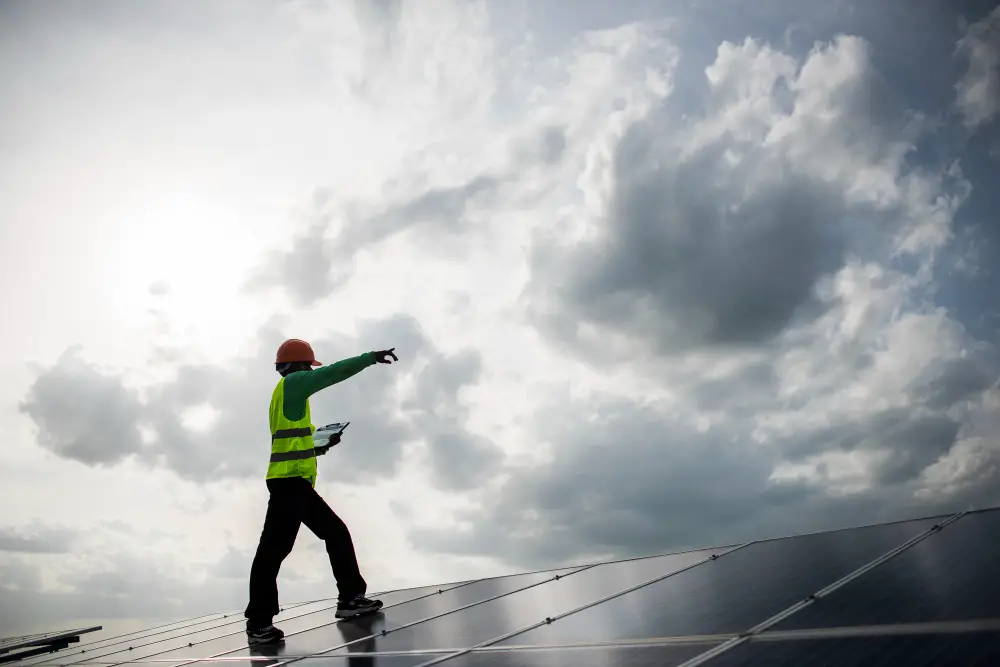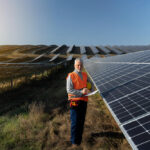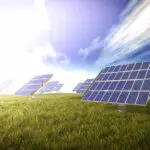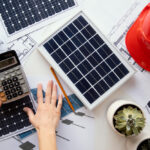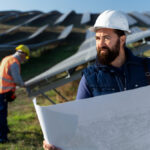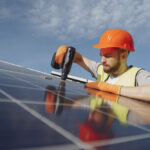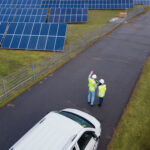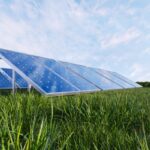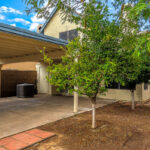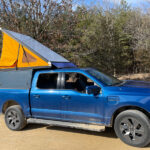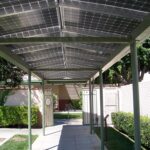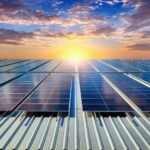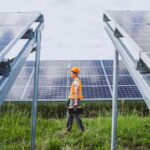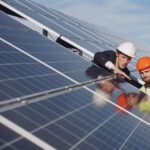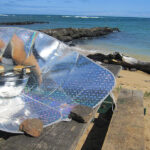Solar panels have become a common sight on rooftops, harnessing the power of the sun to generate clean and renewable energy. But have you ever wondered if you could actually walk on solar panels? Can you use them as a pathway to access other parts of your roof? In this blog, we’ll delve into the intriguing world of solar panels and find out whether walking on them is a good idea or not.
How Much Weight Solar Panels can Handle?
The weight capacity of solar panels varies depending on their size, material, and manufacturing quality. Generally speaking, most standard residential solar panels are designed to withstand a certain amount of weight, but they’re not meant to be walked on regularly.
According to industry standards, a typical residential solar panel can support up to 20 pounds per square foot. This means that a person who weighs around 150 pounds could potentially stand on a single solar panel without causing any damage. However, it’s important to note that this is just an estimate, and factors such as the type of glass used in the panel, the age of the panel, and the surface texture can all affect its weight tolerance.
It’s also worth mentioning that commercial solar panels are typically designed to handle heavier loads than residential ones, as they need to support the weight of maintenance personnel and equipment during installation and repair work. However, even commercial-grade solar panels have limitations when it comes to weight capacity, so it’s essential to follow proper safety protocols when working on or near them.
Reasons to Avoid a Walk on Solar Panels
While it may seem like a harmless act, walking on solar panels can lead to various issues down the line. Here are some reasons why you should avoid treading on your solar investment:
Damage to the Glass
The glass surface of solar panels is prone to cracking or shattering under pressure. If you step on a solar panel, you risk breaking the glass, which can compromise the panel’s ability to generate electricity. Replacing broken glass can be expensive and time-consuming, and in some cases, it may be more cost-effective to replace the entire panel.
Reduced Efficiency
Even if you don’t break the glass, walking on solar panels can still reduce their efficiency. Dirt, debris, and other substances transferred from your shoes can accumulate on the surface of the panels, blocking sunlight and reducing their ability to convert photons into electrons. Over time, this buildup can significantly decrease the panel’s power output.
Safety Concerns
Walking on solar panels can be hazardous, especially if you need to access the roof for maintenance or repairs. Slippery surfaces, uneven terrain, and unstable ladder positions can lead to falls, injuries, or worse. It’s crucial to prioritize safety when working at heights, and avoiding unnecessary risks by not walking on solar panels is a wise decision.
Voiding Warranties
Many solar panel manufacturers explicitly state in their warranties that walking on the panels voids coverage. If you accidentally damage your solar panels while walking on them, you may find yourself liable for the costs of repair or replacement, which can be a significant financial burden.
Do Solar Panels Get Damaged if I Walk on Them?
Yes, solar panels can get damaged if you walk on them. Additionally, the weight of a person can cause the panel to flex, which can lead to microcracks in the silicon cells inside the panel. These cracks can grow over time, ultimately leading to reduced power output or complete failure of the panel.
- Microcracks: The pressure exerted while walking on solar panels can create microscopic cracks in the solar cells. Over time, these cracks can hinder the panels’ ability to generate electricity efficiently.
- Glass Breakage: Solar panels have a protective layer of glass that covers the solar cells. If you apply excessive force while walking on the panels, you risk breaking this glass layer. Broken glass not only exposes the delicate components to the environment but can also compromise the panel’s structural integrity.
- Connector Damage: Solar panels are interconnected with wiring and connectors. Walking on them can damage these connectors, leading to electrical issues and reduced power output.
What to Do if You Walk on Solar Panel & It Gets Damaged
If you notice any damage to your solar panel, it’s essential to address the issue promptly to minimize further damage and ensure your safety. Here’s what to do:
- Turn off the system: Disconnect the solar panel array from the inverter and shut down the system to prevent electrical shock or further damage.
Inspect the damage: Carefully inspect the affected area to determine the extent of the damage. Check for broken glass, cracks, or any other signs of damage. Take note of the location and severity of the damage. - Contact a professional: Depending on the extent of the damage, you may want to contact a professional solar panel technician to assess the situation and provide guidance on the best course of action. They can help determine whether the damage is minor and can be repaired, or if the panel needs to be replaced entirely.
- Consider replacing the panel: If the damage is severe or the panel is no longer functioning properly, it may be more cost-effective to replace the panel altogether. This can help ensure that your solar panel system is running efficiently and safely.
- Prevent future damage: To prevent similar damage from occurring in the future, consider taking steps to protect your solar panels from extreme weather conditions, such as high winds or hail. You can install protective covers or reinforcement brackets to help secure the panels and prevent damage. Regular inspections and maintenance can also help identify potential issues before they become major problems.
- Document the damage: Take photos and notes documenting the damage to your solar panels. Keep a record of the date, time, and location of the damage, as well as any other relevant details. This information can be useful for insurance purposes or when applying for rebates or claim solar insurance.
- Seek assistance from the manufacturer: If your solar panels are still under warranty, contact the manufacturer to see if they can provide assistance with repairs or replacement. They may be able to offer additional guidance or resources to help resolve the issue.
- Determine the impact on your energy production: Calculate the impact of the damaged solar panel on your overall energy production. This will help you understand the urgency of the situation and make informed decisions about how to proceed.
Cleaning Solar Panels Without Walking on Them
Keeping your solar panels clean is important for maintaining their efficiency. Here’s how you can clean them without walking on them:
Use a Soft Brush or Hose: If your panels are easily accessible, you can gently brush away loose debris using a soft-bristle brush. Alternatively, use a hose to rinse off dirt and dust. Make sure to choose the best solar panel cleaning brushes for the job.
Cleaning Solution: If there’s stubborn dirt or grime, mix a mild soap solution with water. Apply it gently using a soft cloth or sponge. Avoid using harsh chemicals or abrasive materials that could scratch the panel surface. You can even use vinegar or other waterless option to clean solar panels.
Solar Panel Cleaning Kit: Consider investing in a solar panel cleaning kit that includes long-handled tools specifically designed for cleaning solar panels. These kits can help you reach and clean the panels effectively without the need to step on them.
In conclusion, while the idea of walking on solar panels might seem enticing, it’s best to avoid it to prevent potential damage, warranty issues, and safety risks. Proper care, maintenance, and cleaning techniques will ensure that your solar panels continue to generate clean energy efficiently for years to come.

